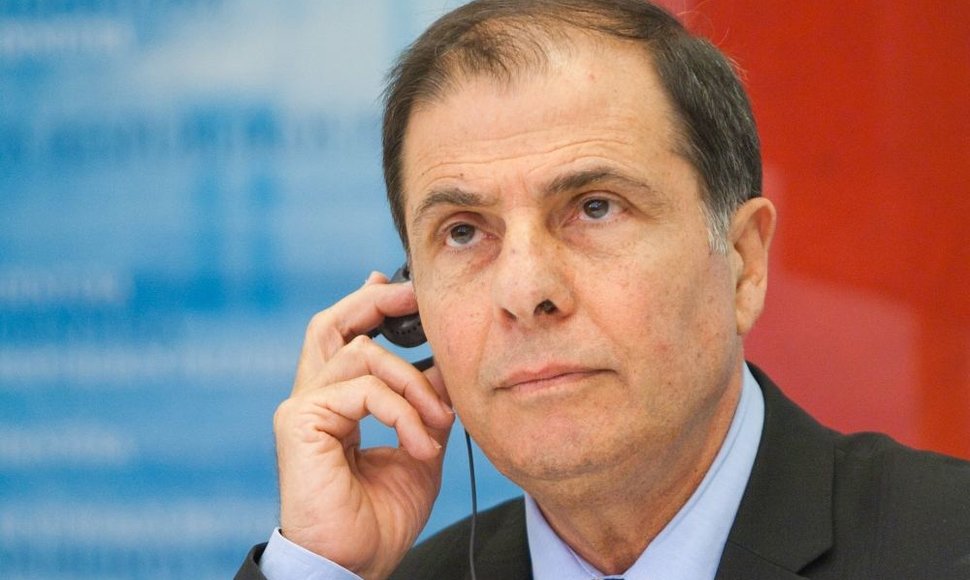After meeting with Lithuania's President Dalia Grybauskaitė, Abela said that Malta had more than 5,000 refugees, as compared with merely a few hundred hosted by other EU countries.
"We approached Europe with a call for more help in specific decisions to share the burden and solidarity," Abela told journalists.
In 2007, Lithuania accepted six refugees from Malta. Last year, the Lithuanian government decided to accept six more asylum seekers, a response from the European Commission is yet to be received.
Nevertheless, Abela said that the assistance Malta has been receiving from Europe was considerably smaller than that from the United States, which agreed to take a thousand refugees.
"Malta will keep on insisting that even the new proposals being put forward by the European Commission should not be temporary but a permanent pilot project... North Africa is still not settled, the situation there has not yet stabilized, and that will undoubtedly affect our island," the president said.
The president noted that two hundred immigrants were en route to Malta over the past weekend. The bulk of immigrants arrive in Malta from Libya, but there are many people from Somali and Eritrea.
"You can imagine the impact, pressure this have on our economy," he said.
Lithuania's President Dalia Grybauskaitė, in her turn, said that Lithuania joined the European Union's (EU) policy because it understands "that the situation of the past two years in North Africa brings great immigration flows to countries in Southern Europe."
Lithuania proud of crisis management efforts
Lithuanian President Dalia Grybauskaitė says the country should be proud of its efforts to handle the economic downturn.
After meeting with the visiting President George Abela of Malta in Vilnius on Tuesday, the president recalled that Lithuania introduced urgent saving instruments and cut 2009-2010 spending by a sum that equaled to 12 percent of the gross domestic product (GDP).
"Lithuania was capable to manage by itself, without any bailouts, without any external assistance. Now we feel strong, experienced and proud. Of course, the situation in Europe is not settled and it's too early to relax," Grybauskaitė said in response to a question from a Maltese journalist.
In an effort to handle the crisis, Lithuania introduced rigid austerity instruments before the majority of other European nations. The country's economy went down by nearly 15 percent in 2009, reporting a modest growth of 1.4 percent in 2010. The gross domestic product (GDP) swelled by 6 percent last year and is expected to grow 2.5 percent in 2012.
Joint efforts in EU budget talks
Leaders of Lithuania and Malta agreed to pool their efforts in the negotiations on the European Union's (EU) future budget where smaller and poorer countries seek to keep the current level of EU structural assistance.
"Both countries hold very similar positions in the negotiations on the EU financial perspective, therefore, harmonization is possible here to help each other," Grybauskaitė told Vilnius journalists on Tuesday after meeting with her Maltese counterpart, George Abela.
Lithuania and Malta are among the EU countries that suggest that the EU cohesion assistance should remain unchanged. In addition to the two countries, the position is usually supported by Latvia, Estonia, Bulgaria, the Czech Republic, Romania, Slovakia, Slovenia, Portugal, and Hungary.
Lithuania has criticized the European Commission's (EC) proposal to cut payments from the EU structural funds starting 2014 in the light of the earlier size of the gross domestic product (GDP). In Lithuania, the GDP went down by nearly 15 percent in 2009 in the wake of the economic downturn.
Lithuania has also called for a faster reduction of the difference between assistance to farmers in the EU's newcomers and old members, seeking to secure more support to the decommissioning of the Ignalina Nuclear Power Plant.
"In the European Union, we all are closely connected. We share common goals. Negotiations on the EU financial framework, energy security, agricultural and cohesion policies are the tasks important to the wellbeing of our countries and people, which need close mutual cooperation and support among the EU member-states," Grybauskaitė said in a press release.












